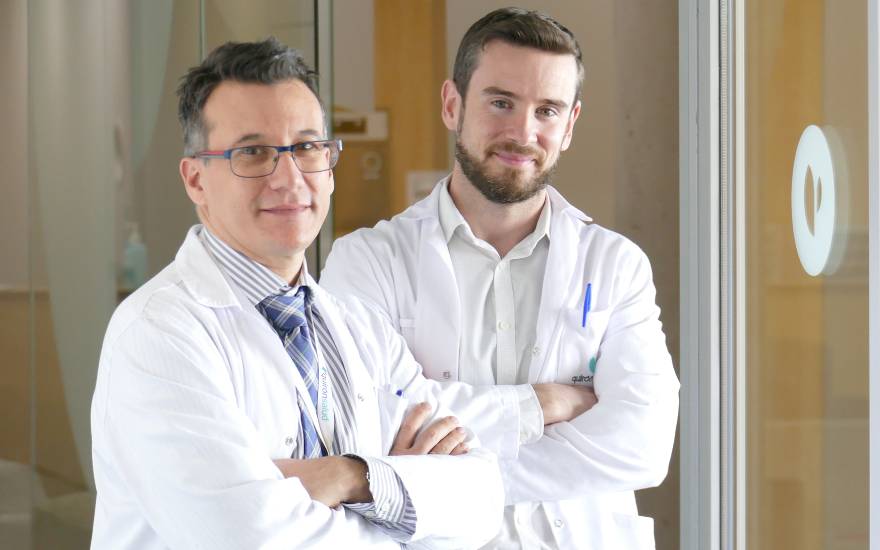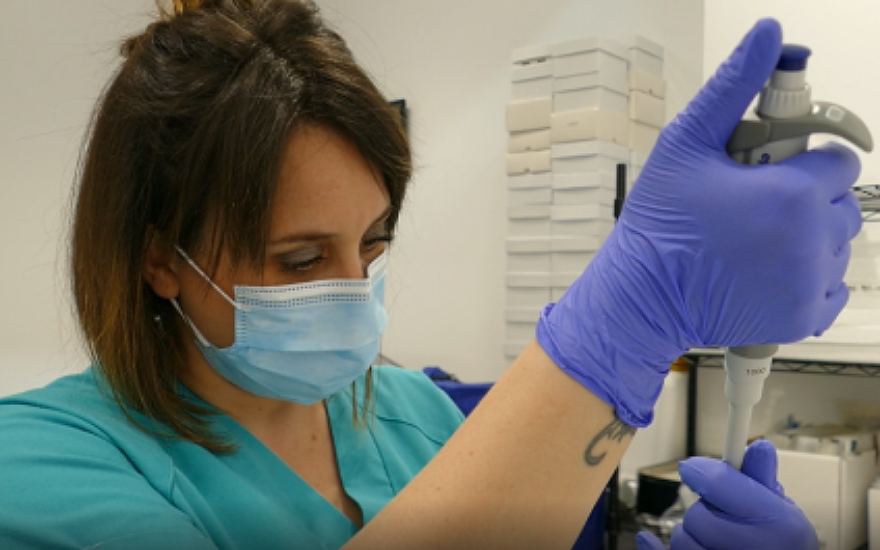Clinical pharmacology
Find out what clinical pharmacology is and what is its field of study. We explain to you what it involves, its main areas of work and what techniques are most commonly used. Find the pharmacies located in our hospitals.

What is clinical pharmacology?
Clinical pharmacology is responsible for assessing the effects of drugs on people, both in the general population and in each individual patient. The ultimate goal of this speciality is to dispense the most suitable medication depending on each person’s circumstances. In this way, risks are minimised, treatments are more effective and costs are reduced.
What does clinical pharmacology study/treat?
Clinical pharmacology focuses on the assessment of drug efficacy. Research results in this field are then applied to the selection of the most suitable medicines for specific diseases, to the development of protocols for the administration of medicines and to the drafting of prescribing guidelines as a reference for physicians.
The areas of work addressed by clinical pharmacology include:
- Basic pharmacology: focused on the study of the effects of medication on patients and on the disease.
- Clinical trials: specialists are not only actively involved in studies to assess the efficacy and tolerance of specific medicines. They also establish protocols and offer advice on how to carry them out, following the recommendations of the Clinical Research Ethics Committee.
- Pharmacovigilance: creates a system that warns of adverse effects caused by a medication. A patient safety committee is set up to this end in order to analyse hospital admissions that are potentially caused by a particular drug.
- Pharmacogenetics: one of the best ways of personalising treatment, as the patient’s genes are analysed to predict the body’s response to a medication. Whether positive or negative.
- Pain management: clinical pharmacology specialists work closely with pain unit physicians to find the most suitable medication for each patient with chronic or acute pain or in a terminal situation.
Techniques, procedures and diagnostic methods
Because clinical pharmacology covers a wide field of action, it uses many different working procedures. The methods vary depending on the area in which they are carried out. However, the most prominent clinical studies are for drug development, which are divided into four phases that may overlap in time:
- Phase I: focuses on demonstrating that a medication is safe for humans and is therefore tested in healthy adults, with the exception of highly toxic drugs. A range of techniques are usually used:
- Single ascending dose (SAD) studies, which help establish the number of doses that are safe for the body and find side effects, if any. This involves administering a very small amount of the drug and gradually increasing it in different people each time.
- Multiple ascending dose (MAD) studies, which are used to understand how the medicine works. In this case, a low dose is administered repeatedly over a certain time interval to establish how it is processed by the human body.
- Special population studies, which are carried out when there is already a lot of information about the medicine, as it applies to people with additional risks and where the processes are known to vary. For example, children, the elderly or the mentally ill.
- Phase II: Once the risks have been ruled out, the efficacy against the disease is tested and the suitable dose is established.
- Phase III: measures the efficacy of the drug.
- Phase IV: when the drug is already approved and in use, this stage studies its effects in the real world.


















